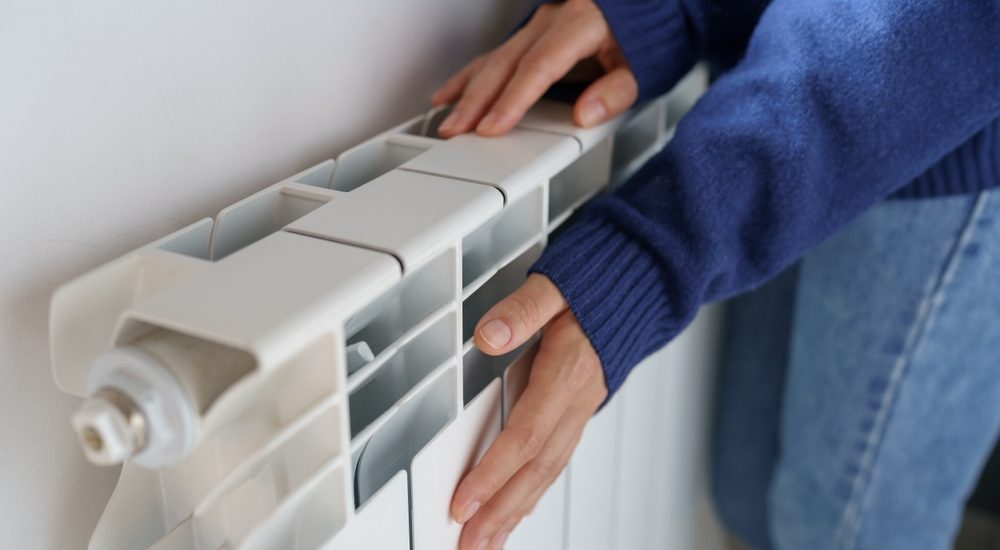- Tomorrow (1 October) the price cap rises 10%.
- A new survey by fuel poverty charity National Energy Action and YouGov finds almost half of adults in GB (46%) say they are likely to ration their energy use this winter.
- 27% of adults in GB have found it difficult to pay for energy in the last year.
- Energy bills are set to rise by 10% on 1 October, meaning 6 million UK households will be in fuel poverty, according to National Energy Action.
- 4% have even rationed the use of essential medical equipment in the last three months, while a quarter (23%) have had cold meals to avoid using the oven.
As energy bills are set to rise again, by 10%, tomorrow (Tuesday 1 October), a new survey by fuel poverty charity National Energy Action1 and YouGov2 has found almost half (46%) of adults in GB say they are likely to ration their energy use this winter – using less than they should for maintaining comfort and wellbeing.
A quarter (27%) of adults in GB say they have found it difficult to pay for their energy in the last year. This rises to almost half (45%) on a low income of less than £15,000 a year).
Over a third (37%) of GB adults on prepayment meters say they have gone without power or heating when they needed it.
The charity also says that tomorrow’s (1 October) price cap increase leaves 6 million UK households in fuel poverty 3. This comes days after Ofgem said energy debt has reached a record £3.7 billion4. A typical household5 will now face an annual bill of £1,717, up from £1,568.
Chief Executive at National Energy Action Adam Scorer says,
‘Millions of households face another dreadful winter, resigned to increasing energy debt or not heating their homes at all. We find ourselves stuck in a predictable loop of increasing prices and inadequate support.
‘Whether or not wealthy pensioners should receive help with their energy bill, the decision to restrict the Winter Fuel Payment has put more vulnerable pensioners at risk.6
‘There is still time for the UK government to increase the support provided through the Warm Homes Discount scheme and to work with Ofgem and energy suppliers to provide direct support to reduce bills, help people at risk of self-disconnection and tackle record levels of energy debt.
‘But this must be the last winter for the quick fix. Government needs a plan to tackle debt, to tackle affordability and to deliver warm homes.’
The survey of 2,301 adults in GB also found that even in the last three month, when energy costs are typically lower, they were making significant cutbacks:
- 48% of adults in GB say they have turned off more lights than they wanted to (56% on a low income).
- 23% say they have had cold meals rather than use the oven (43% on a low income).
- 40% say they have reduced their use of baths or showers (57% on a low income).
- 25% say they haven’t run the washing machine when they needed to (45% on a low income).
Four percent even reported reducing the use of essential medical equipment (such as oxygen and hoists).
A fifth (18%) say they have cut back on essential items or services, while 8% say they have borrowed from family or friends, and 4% have missed payments on other essential household bills (e.g. rent, mortgage, council tax).
If this goes online, please link to www.nea.org.uk/energy-crisis. If you write about this on Twitter/X or Threads please include @NEA_UKCharity.
ENDS
Notes to editors
- National Energy Action (NEA), is the national fuel poverty charity, working across England, Wales and Northern Ireland, to improve the lives of people in fuel poverty. We directly support people with energy and income maximisation advice, and we advocate on issues such as the current energy crisis and the need to improve the energy efficiency of our homes. See: www.nea.org.uk
- All figures, unless otherwise stated, are from YouGov Plc. Total sample size was 2,301 adults. Fieldwork was undertaken between 11th – 12th September 2024. The survey was carried out online. The figures have been weighted and are representative of all GB adults (aged 18+).
- The definition of fuel poverty that National Energy Action uses is that a household is in fuel poverty if it needs to spend 10% or more of its income on energy in order to maintain a satisfactory heating regime.
- Ofgem confirmed on 26 September that energy debts are at record levels, with customers owing £3.7 billion. This means, alongside their usage for the winter, households will also be paying back large debts going into the winter. www.ofgem.gov.uk/publications/debt-and-arrears-indicators
- Ofgem calculates its price cap figure based on a typical house. But it is a cap per kWh, not on the total bill. If customers use more, they pay more.
- Two million vulnerable pensioners could miss out on support, according to Age UK. 880,000 eligible pensioners currently don’t claim pension credit and therefore miss out on Winter Fuel Payment.
If you would like to opt out of mailing from National Energy Action, please email press@nea.org.uk


